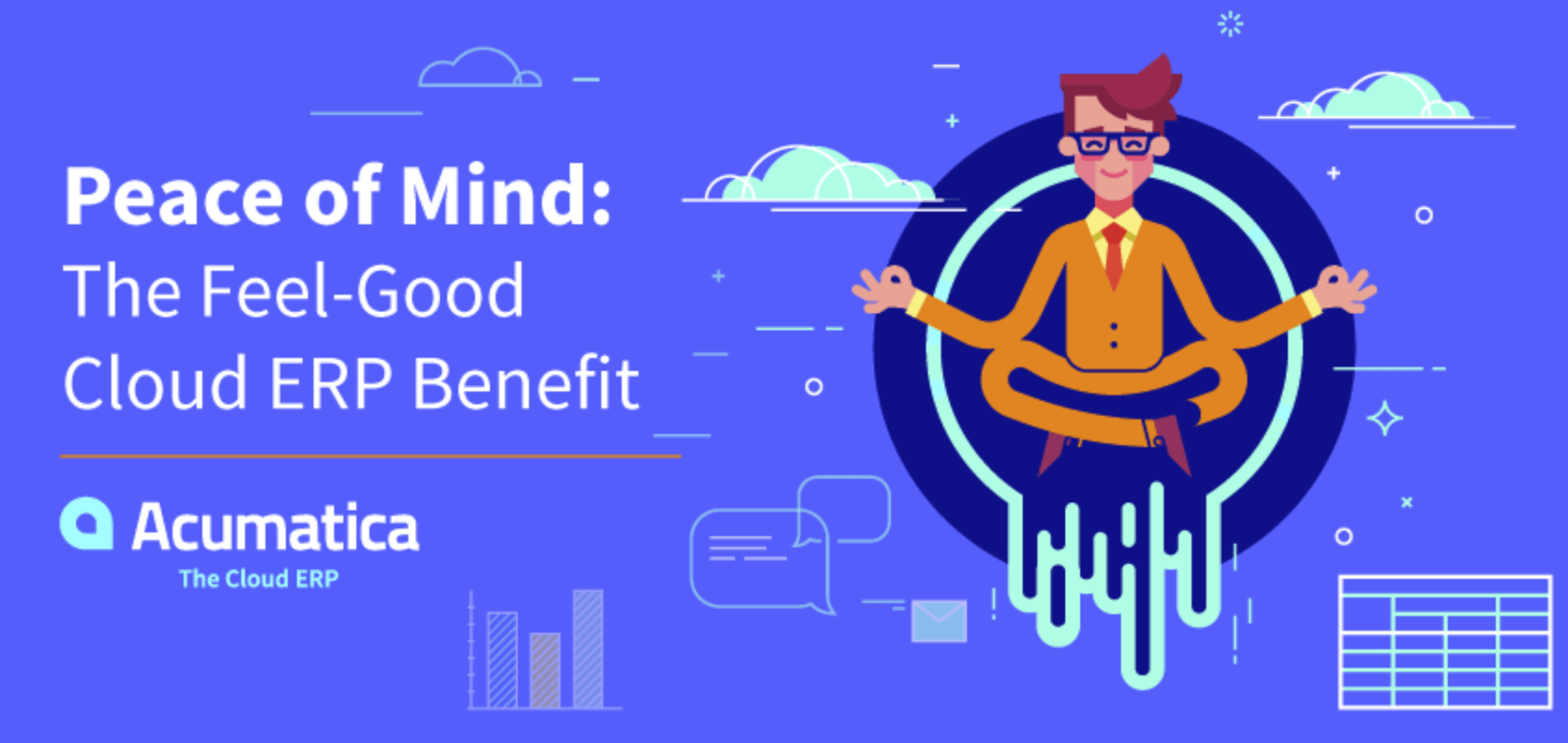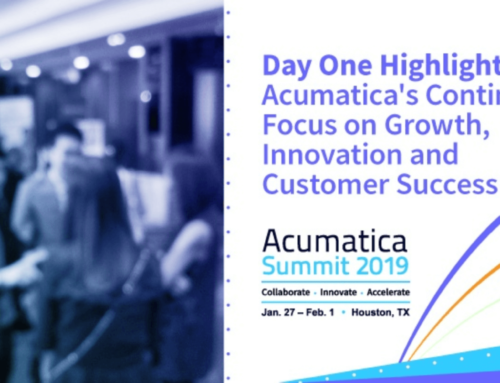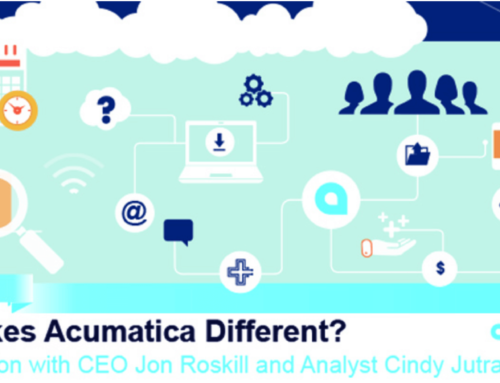Kathy Visser-May | August 23, 2018
Thank you for reading this post, don't forget to subscribe!
Implementing a modern cloud ERP solution will go a long way in bringing peace and harmony to the workplace. How so? With seamless integration, automated processes, and unhindered mobility, you and your co-workers can focus on what’s important—both in and out of the office.
You may need to consider being in the market for a cloud ERP system if any of the following scenarios resonate with you:
- You’re at the office late, wiped out and frustrated. There’s information you need to make a decision, but you have to wait around for the numbers to crunch.
- You’re on a family vacation, (trying to) enjoy some time away. As soon as you sit back with a frozen beverage, you get a “mission critical” phone call from the office. You’re fairly certain that with the right tools, your team could figure the issue out without you.
- You’re working from home, signed-in through a VPN connection and passing spreadsheets back and forth with your IT team over email. Either something’s getting lost in translation or the data you need is harder to get than you expected.
You think, “There’s got to be an easier way!” There is.
Rethinking the status quo with cloud-based ERP
If you’re considering upgrading to a cloud-based ERP system, it’s probable that the status quo—working with your existing (and likely disconnected) business systems—just isn’t what it used to be. Your business has grown and gotten more complex; perhaps you’ve added more employees, products, or business units.
Your on-premise system simply can’t handle the volumes of data and documentation your business generates, and getting timely and relevant insights from that data is nearly impossible.What’s more, your experience with your business systems has changed—and so have your expectations, thanks, in part, to the way you engage with web-based apps and services outside of the office.
Simply put, you’ve outgrown what used to work so well. But the right cloud-based ERP solution can help you get out of the office on time, enjoy your vacation, and work from home (or wherever) more efficiently.
However, since ERP systems have been around for over 20 years, there are major differences. Unfortunately, some are advertised as cloud solutions and behind the covers are the old, legacy processes and technologies which cannot deliver the same productivity as a modern, cloud solution. This blog describes how modern, cloud-based ERP systems have distinct advantages over legacy hosted or on-premise counterparts.Let’s take a look at what it is about these solutions that “changes everything” in the way you manage and access data, the way you make decisions, and the way you work.
Integrations = peace of mind
The beauty of most ERP systems is the integration capabilities; it puts your core business processes (and data) in one place. Financial management, CRM, field services, and ecommerce functions. Underlying architecture makes it remarkably easy to add new functionality from inside or outside the vendor’s product suite to rapidly respond to business process changes.
Because they’re built to accommodate—and, more importantly, make sense of—disparate data sources and formats, you’re able to collect and glean insights from virtually all of the data generated by your business. For example, all business processes can feed into a single personalized dashboard to give you a 360-degree view of your business.
Staying late at the office, frustrated because it’s taking forever for reports to run? This isn’t an issue once your cloud-based ERP system is up and running. Your data is already there—ready to be crunched immediately—and insights are available on-demand. So head out for home on time!
Don’t miss Why Your Cloud ERP Platform Needs to Have a Strong API for Integration for more insights.
Automation = peace of mind
Today, with your existing business system, some of your everyday processes may include some manual steps. For instance, employees may be cutting and pasting data from one, two, or multiple reports into Excel spreadsheets, in which data has to be formatted and calculated using various formulas and functions. The potential for costly human error notwithstanding, this hands-on data management is inefficient and presents a huge opportunity cost when you consider that everything just mentioned can be automated by cloud-based ERP software.
When your employees are not elbow deep in spreadsheets and manual processes, they can focus on more strategic tasks, such as using data instead of entering data. And maybe they can do more independent problem-solving—interpreting data based on drill-down reports and visualizations that eliminate their need to call you when you’re at the beach or on the golf course.
Anytime/anywhere access = peace of mind
Most users of legacy ERP systems are tethered to their desktops—when they want to use their business software, anyway. That’s because when these systems were engineered, the technology available to their developers was nothing like what’s available today. There wasn’t a need for mobile device flexibility because, well, for all intents and purposes, mobile devices were cordless, landline phones. There also wasn’t nearly as much data, as significant amounts of information lived in paper documents, so processing capacity and speed wasn’t as demanding as it is today.
Today’s cloud-based ERP solutions are built in the cloud, for the cloud, for on-the-go users who expect to tap into their digital business documents, workflows, and various collaborative software tools anywhere and everywhere. They’re born from a different computing environment than their predecessors.
Users can access their web-based software tools and data from a browser or app—from any connected computer or device—whether they’re at the office, in the airport, or sitting on their living room couch. And what’s accessible to one user is generally accessible to other users, so everyone’s working from the same up-to-date data and documentation.
Learn more in The Benefits of a Mobile ERP Platform.
Ready for peace-of-mind from Acumatica’s cloud-based ERP solution?
Find out more about the Acumatica Cloud ERP Platform and what makes Acumatica’s cloud-based ERP different. And contact us at any time if you have questions about our cloud-based ERP.





